In some cases, may confiscate the car
Confiscation of the vehicle in a criminal case.
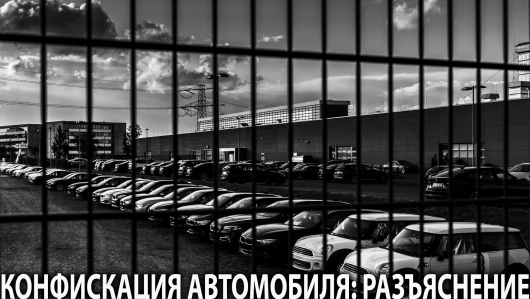
Today, probably, every driver knows that a traffic violation your car in your absence can be sent to the impound lot. But you can easily pick out of impound, paying for evacuation and a fine for a traffic violation. However, did you know that in certain cases in criminal proceedings car be confiscated? Unfortunately, not all have an idea, in some cases, the vehicles are subject to confiscation.
And you know the worst thing? That’s not even know the judges. That is why the Supreme court of the Russian Federation issued the Decree No. 17 of 14 June 2018 with the explanation of the procedure of confiscation of property in criminal proceedings. We have studied this document with the aim to give full information on the confiscation of vehicles, as well as answer a number of questions that arose among participants of the criminal process.
First, let us remember that such confiscation of property. Not many people know that this is not a seizure of property that can be removed. And, of course, is not a pound from which the owner of the car can always pick up the car within the framework of administrative Affairs.
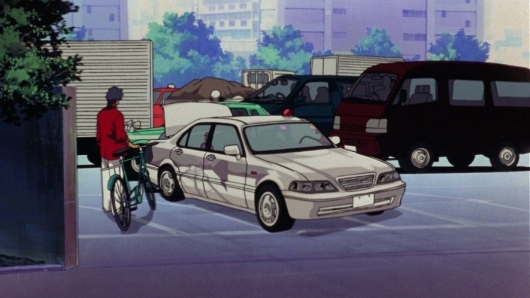
Confiscation of property, pursuant to article 104.1 of the criminal code, is a forcible uncompensated taking and an appeal to the state property on the basis of a conviction. What can become the object of confiscation? Here is a list of property subject to forfeiture:
- – Money, valuables and other property obtained through the Commission of crimes
- Money, valuables and other property that is the subject of illegal movement across the customs border of the Customs Union within the Eurasian economic community or across the State border of the Russian Federation with the States
- Money, valuables and other property used or intended to Finance terrorism, extremist activities, organized group, illegal armed formation, criminal community (criminal organization)
- Weapon, equipment, or other means of Commission of the crime belonging to the accused
Also according to part 2 of article 104.1 of the criminal code, if the property obtained as a result of the crime, and (or) the income from this property was attached to property acquired legally, confiscation is subject to the portion of this property, which corresponds to the value of the attached property and incomes from it.
Including escheat property transferred condemned to other person or organization, if such property in criminal proceedings shall be confiscated when a person who has accepted property, knew or should have known that it was obtained by crime.
Unfortunately, as often happens in our country, many interpret complex laws in their own way. Including the courts, which give rulings in a criminal case on the confiscation of property, which often convicts confiscated property illegally. In the result the Supreme court was forced to give a detailed explanation on the procedure of application by courts of norms of criminal and criminal procedure legislation regulating the grounds and procedure for confiscation of property.
So, 14.06.2018 year, the Plenum of the Supreme court of the Russian Federation issued the Decree №17 on the correct application by courts of confiscation of property.
Our online edition has studied this document to analyze and determine the rules of law entitling the court to confiscate the property. Including the cars.
So, let’s start.
In some cases, property values and incomes shall be confiscated in accordance with article 1041 of the criminal code?
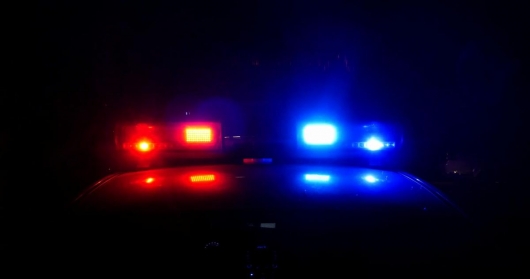
According to the Decree of the Plenum of the Supreme court, money, valuables and other property (including income) are subject to confiscation in criminal proceedings, if they obtained through the Commission only those crimes specified in the criminal law or has been the subject of illegal movement across the border of the Russian Federation (smuggling, etc.). So, the confiscation shall be money, property and other values under the following articles of the criminal code:
- – Article 200.1. Smuggling of cash and (or) monetary instruments
- – Article 200.2. Smuggling of alcohol and (or) tobacco products
- Article 226.1. Smuggling of potent, poisonous, toxic, explosive, radioactive substances, radiation sources, nuclear materials, firearms or basic parts, explosive devices, ammunition, weapons of mass destruction, their means of delivery, other weapons, other military equipment, and also materials and equipment that can be used to create weapons of mass destruction, their means of delivery, other weapons, other military equipment, as well as strategically important goods and resources or cultural values or especially valuable wild animals and aquatic biological resources
- Article 229.1. The smuggling of narcotic drugs, psychotropic substances, their precursors or analogues, plants containing narcotic drugs, psychotropic substances or their precursors or parts thereof containing narcotic drugs, psychotropic substances or their precursors, instruments or equipment under special control and used for manufacture of narcotic drugs or psychotropic substances
Including under current law are subject to confiscation of money, valuables and other property used to Finance terrorists, extremists, organized criminal groups, illegal armed groups, criminal networks.
Also, the Supreme court notes that forfeiture is also subject tools, equipment or other instrumentalities of crime belonging to an accused person prosecuted.
It should be noted that in this case, the confiscation of property may be applied for any crimes, which list has no legal restrictions.

That is, this item allows the courts to impose forfeiture in relation to vehicles, even though they were not acquired through criminal proceeds. For example, the vehicle may be confiscated in the state income, if this vehicle was used for smuggling or committing a crime.
In more detail, the Supreme court reveals the rate of confiscation of the vehicle in the following paragraph of the Resolution of Plenum VS of the Russian Federation No. 17 of June 14, 2018:
Based on the provisions of paragraph “C” of article 1 of the Council of Europe Convention on laundering, search, seizure and confiscation of the proceeds from crime and on the financing of terrorism of 16 may 2005, paragraph 8 of part 1 of article 73, part 3 of article 115 and paragraph 101 of part 1 of article 299 of the Criminal procedure code of the Russian Federation (further – UPK the Russian Federation), tools, equipment or other means of committing the crime should include the items that were used or were intended for use in committing criminal acts or to achieve the criminal result (e.g., car, equipped with a special storage to conceal items when their illegal movement across the customs border or State border of the Russian Federation; the sounders and navigators with illegal extraction (catch) of aquatic biological resources; copiers and other office equipment used to produce counterfeit documents).
When deciding on confiscation of guns, equipment, or other instrumentalities of a crime under paragraph “g” of part 1 of article 1041 of the criminal code of Russian Federation the court must establish the fact that such property is owned by the accused.
Here’s another important point of clarification, the armed forces of the impossibility of the return of confiscated property:
To explain to courts that on sense of the provisions of paragraph “a” of part 1 of article 1041 of the criminal code and paragraph 4 of part 3 of article 81 of the code of criminal procedure specified in these regulations the property is subject to confiscation and may not be returned to the person who is its owner, unless that person participated in the offence in respect of which confiscation is applied (for example, the owner of contraband involved in the illegal movement).
In cases of crimes of corruption money, valuables and other property, transferred in the form of a bribe or the commercial bribe item will be confiscated and cannot be returned to the briber or the person who committed commercial bribery, including in cases where they are exempted from criminal liability on the basis of the respectively note to article 291 of the criminal code, note to article 2912 of the criminal code or paragraph 2 of the notes to article 204 of the criminal code, note to article 2042 of the criminal code.
Whether the property to be seized, be arrested until a court decision?

Many participants in the criminal process often have questions relating to the seizure of property pending a final court decision on the case. To the unified courts interpreted the law, the Supreme court explained that a seizure may be imposed before the adjudication of the framework 115 of the criminal procedure code (seizure of property) for the purpose of enforcement of a future judgment.
Could it be seized property held by other persons who are not suspects, defendants or persons who are, by law, financially responsible for their actions?
Yeah, maybe so. Under part 3 of article 115 of the criminal procedure code, property may be arrested until a court decision even if it is not only the suspect, the accused or the persons bearing under the law liability for their actions, but others. However, such arrest is possible if there are reasonable grounds to believe that the property received in the property as a result of criminal actions or was used (in the case of attempted crimes was meant) to use as instruments of crime.
It is noteworthy that the arrest of property may be imposed even if a criminal case the identity of the suspect is not established.
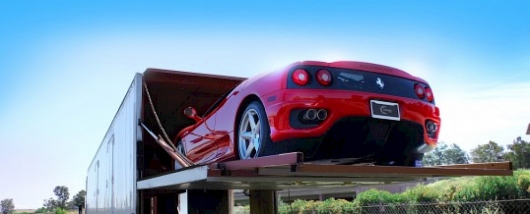
So, in other words, the same car that was previously used to commit a crime (or attempted crime), can be arrested even if it is at the time of the initiation of criminal proceedings, in the possession of persons not involved in the crime. Also, as you know, this car could be imposed in subsequent confiscation.
Can you confiscate a car or other property from the ownership of a person who was not aware that the property obtained by a crime or used to commit a crime?
Not according to the explanations of the Supreme court of the Russian Federation, confiscation of property under article 1041 of the criminal code may be imposed on the property (including the vehicle) belonging to a person not prosecuted, only after a thorough examination by courts of the evidence that the person knew or should have known that the property was obtained by crime or used to commit a criminal offence.
Who can initiate the seizure of property that can be confiscated in criminal proceedings?
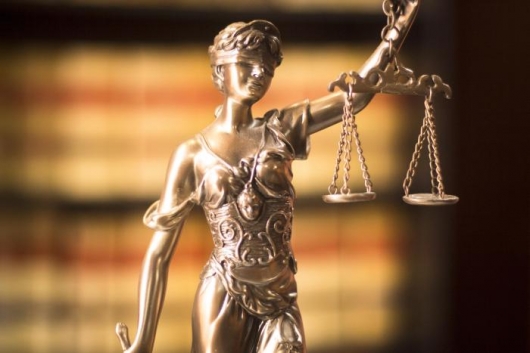
According to the current legislation to ensure preservation of the property subject to forfeiture, the investigating authorities, the Prosecutor’s office is entitled under investigation to petition the court to impose a lien on the property. Including on vehicles that were purchased with money obtained through crime or if the vehicle was used to commit a crime.
Also in the case when during the preliminary investigation of the criminal case was not taken to ensure the possible confiscation of property, the courts have the right in preparation for the criminal proceedings at the request of the victim or his representative or the Prosecutor to order the seizure of property.
Including such a petition may be filed during criminal proceedings in court.
